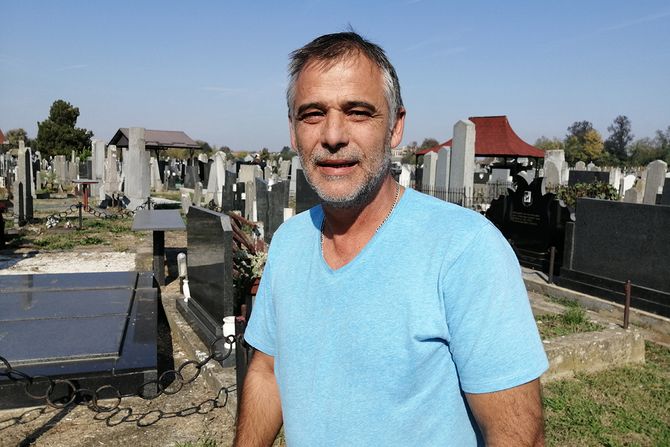
Zoran's job is death: He handles victims of drowning and hanging, carbonized and decaying bodies
Traffic accidents, homicides and suicides, child murders, drowning... Not a day goes by without some tragedy ending a human life. When the doctor confirms that death had occurred, people arrive who carry the body for autopsy and to the chapel. Their profession doesn't have a precise name, and the description is not too long. It's explained onlyby the four consonants (in Serbian) that make up the word that gives everyone the chills - death.
51-year-old Zoran Maletic has been coming across death for twenty years - live. He works at the public communal company (JKP) Bogatic, has an office a the cemetery, is on duty 365 days a year, around the clock, goes to work when the police call, and waits for the investigation to be completed. The corpse is then loaded onto a vehicle and taken to the cemetery or to the hospital chapel, when the prosecutor orders an autopsy.
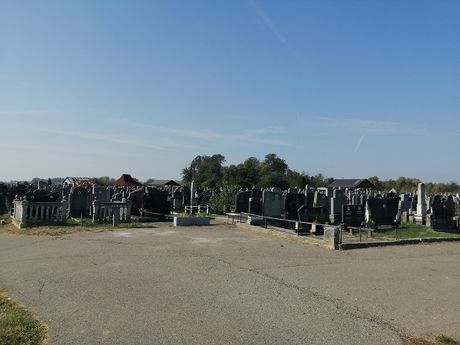
For two decades, he has been looking at lifeless bodies on the roads of Macva in western Serbia, drowning victims in the Drina and Sava rivers, stabbing and ax victims, suicides who hanged themselves... He witnessed about 160 tragic events.
"Some people would not only freeze while hearing about blood, dead babies, young boys and girls, massacred, carbonized, beheaded, corpses infested by worms, swollen and just about to explode victims of drowning... I have no problem with that, though I didn't choose to do this job. Of course I can't say that I like doing this, one would ask if I was crazy if I said so. But it just happened that the job chose me," Zoran says.
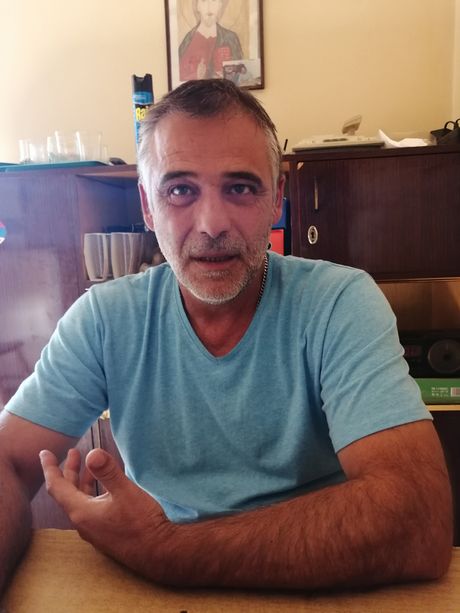
A man whose work begins when death occurs admits that he sometimes questions whether everything is okay with him, who has lived horror for years yet doesn't cry, sleeps peacefully, has no nightmares, the "cases" don't show up in his dreams and he doesn't have to take pills to calm down. He reveals that it was easier for him from the start because he has no fear of seeing a dead body, which is common to most people. And then, on a case-by-case basis, he learned how to turn off emotions. Additional "extenuating circumstances" are psychological stability, nerves of steel, and a strong stomach. He is aware that he can by no means say that his is "a job like any other."
"It's terrible to any normal person to watch the scenes that can only be seen on film. There is no intervention that is not stressful because it's terrible in itself that a human being has died, that a life has ended in an unnatural way. When the police call me, I know they're not calling to invite me to a celebration or a wedding, but I don't even think about where I'm going and what's waiting for me there. I only think about the work while I'm doing it, and when I leave the corpse in the chapel I try not to mention it anymore and to say nothing about the event," continues Zoran.
MOTORCYCLE TRAGEDIES ARE THE WORST
People are most often killed in traffic accidents, and the most difficult are the tragedies where a motorcycle driver dies. Bikers love speeding and therefore end up as casualties. Zoran recalls a strikingly difficult case. A young man who literally had no bone left whole in his body had died. Half of his head was completely crushed, and when he tried to lift the body to put it on a stretcher, the victim's arm fell off and remained in his.
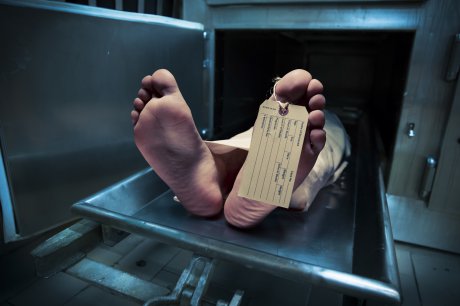
"One man was ground by a chain, and his hand was left hanging on a piece of skin. How else to free the body than to cut it off? The man who had the wheels of a truck run over his head had his brain scattered on the road, and it can't stay that way, it has to be cleaned up. There was also a case where a child was run over by a trailer. It was dark and the people who gathered shouted that the body had no head, but they did not see that it was completely smashed. In one car crash seven or eight years ago, a young man was burned," he tells.
"The car quickly went up in a ball of flames because there was a fuel canister in the trunk and he couldn't save himself. His body was carbonized, contracted, he had no feet because they completely burned. You wouldn't recognize him as a human, and there were barely a dozen kilograms of remains in the sheet where we put him in. That was the only time I could smell burned human flesh, which is closest to the smell of lamb meat. If someone had told me this, I wouldn't have believed them," Zoran continues.

The most horrific cases are those when babies are killed (he had two such interventions) as well as suicide by hanging. These, he says, are by far the most terrible scenes because it is not natural for a human to take their own life.
Listing the tragic events, Zoran notes that when handling victims of drowning one must have a strong stomach because of the strong, unpleasant odor. On such occasions, one should also be resourceful in order to get the corpse out of the branches or from a tree and think how to "catch" it and hook it so that the whole body that is rotting and has started to decay can be pulled ashore. Such interventions can be very dangerous, especially in winter when water levels are high.
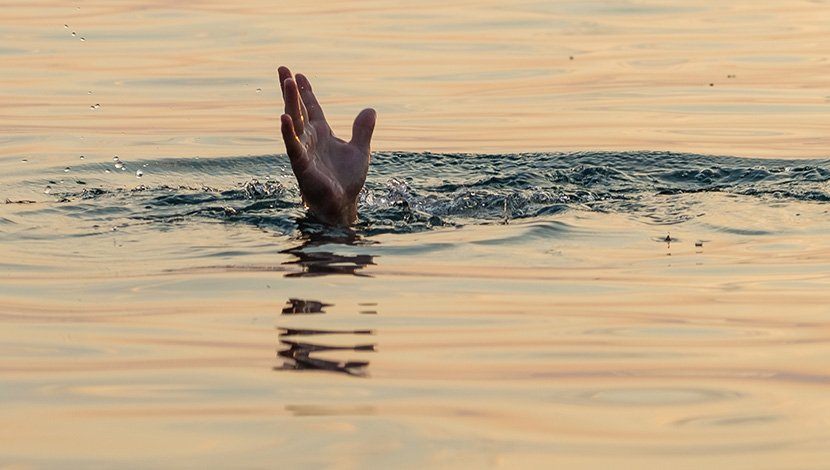
"At that point you risk your own life. The victims of drowning usually get hooked on a tree or a stump far from the shore. Only a boat can reach the body, then you try to find a way to release it and pull it ashore. One January, the Drina was full like a glass, and the body of a woman that was hanging from a tree in the decaying stage had to be pulled out. That was maybe the only time when I thought to myself I'll live forever if I live through this. A colleague who is not a swimmer didn't take the boat with me, so a man who happened to be by agreed to help me. People have helped me on other occasions as well, but few have the stomach for it. Disposable suits and surgical masks that are soaked with lavender scent are used during these interventions," adds Zoran.
Although it's not polite to ask about his salary, we asked Zoran afer all, convinced that his job should be paid more than the "ordinary" ones. Unfortunately, he has a regular monthly salary plus overtime. People whom we asked whether they would do Zoran's job replied that they wouldn't, even "for a thousand euros." They'd rather go underground, work in a mine.
Video: He was buried 14 times and always came back
(D. Grujic)
Video: Obeležavanje krsne slave na Insitutu Dedinje
Telegraf.rs zadržava sva prava nad sadržajem. Za preuzimanje sadržaja pogledajte uputstva na stranici Uslovi korišćenja.

